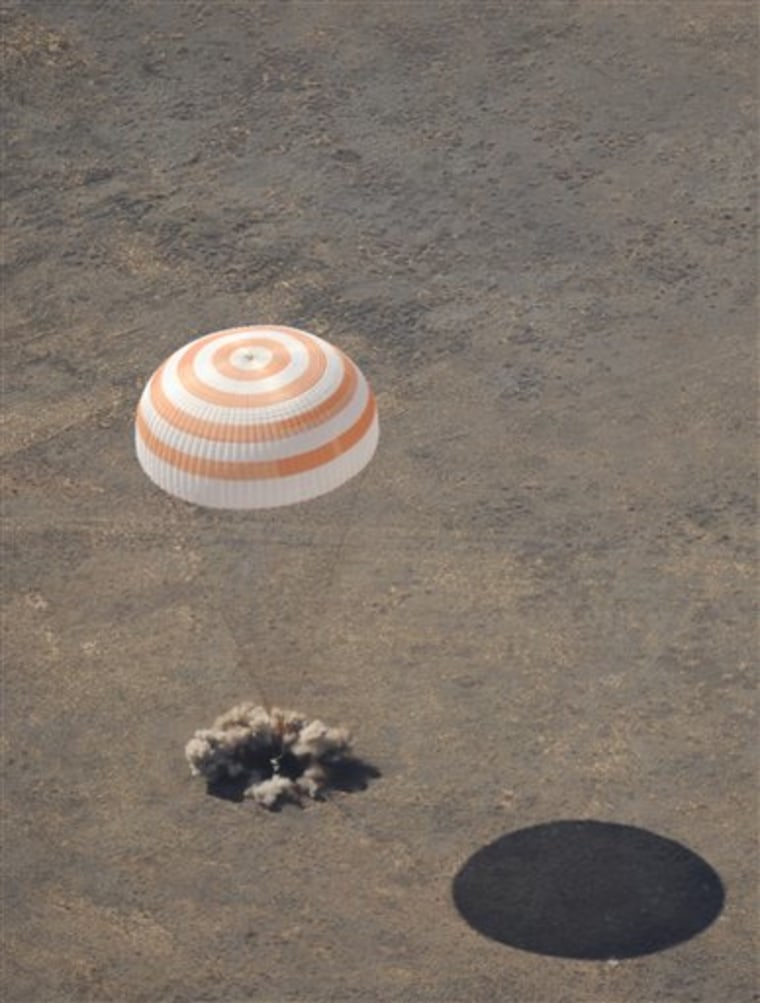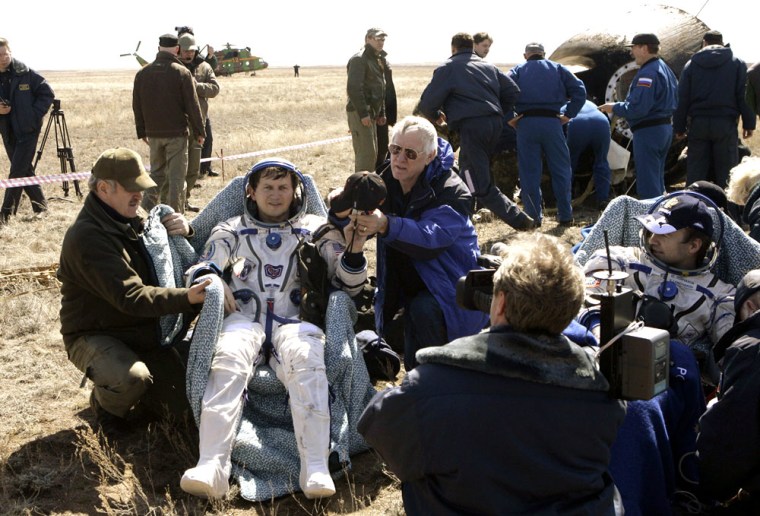A Russian spacecraft carrying a crew of three, including U.S. billionaire space passenger Charles Simonyi, landed safely in Kazakhstan on Wednesday.
The Soyuz capsule touched down around 3:15 a.m. ET Wednesday, about three hours after leaving the international space station. It descended on parachutes and then hit the ground in a jarring puff of dust and dirt.
Russian and American space officials and relatives of the Soyuz's crew applauded as the landing was announced at Russian Mission Control in Korolyov, on Moscow's northern outskirts.
Within 20 minutes of the landing, Simonyi, Russian Yuri Lonchakov and American Michael Fincke were extracted from the capsule, still strapped in their seats, and taken outside under bright sunshine for initial medical examination. The three smiled, gave thumbs-ups to cameras and munched on apples before being carried to waiting helicopters.
"It looks like we know how now to take care of our astronauts and cosmonauts in orbit so that they look good on landing," NASA official Brian O'Connor told reporters at a post-landing news conference.
Simonyi's wife of four months, Lisa Persdotter, met him at the landing, giving him a long kiss and bouncing on her toes in excitement.
Almost a year ago, another Soyuz capsule on its way to Earth hurtled through the atmosphere in a steeper-than-normal descent, subjecting the three-nation crew to severe G-forces and landing hundreds of miles off target.
That incident was the second in a row — and the third since 2003 — during which the landing went awry. Russian space officials said they were pleased at Wednesday's apparently flawless touchdown.
"It's very pleasant for me to not have to make any sort of commentary," said Vitaly Lopota, chief of RKK Energia, which manufacturers the Soyuz craft. "All technical systems of the ship worked excellently, everything went perfectly according to plan."
Simonyi is a former Microsoft executive who became the world's first repeat space tourist when he arrived on the space station on March 28. (Microsoft is a partner in the msnbc.com joint venture.)
He may be the last private traveler the Russians allow to journey to the space station, as the station's permanent crew doubles to six in coming months.

Kazakhstan had planned on sending up its first astronaut later this year, but Anatoly Perminov, chief of the Russian Space Agency, noted that Kazakh officials had decided to cancel the plans. He told reporters that either a regular astronaut or possibly another paying passenger could next travel aboard a Russian craft.
Russia's Soyuz and Progress spacecraft have long been the workhorses of the international efforts to build the space station. The craft will take on even greater importance after 2010 when NASA is expected to retire the space shuttles.
On Tuesday, the Russian Space Agency awarded an 800-million-ruble ($23 million) contract to RKK Energia, to design a next-generation spaceship to replace the 40-year-old Soyuz. The newly announced craft, currently known by its Russian acronym PPTS, would carry supplies and cosmonauts to orbit, and a variant could be used for trips to the moon, Russian officials said.
